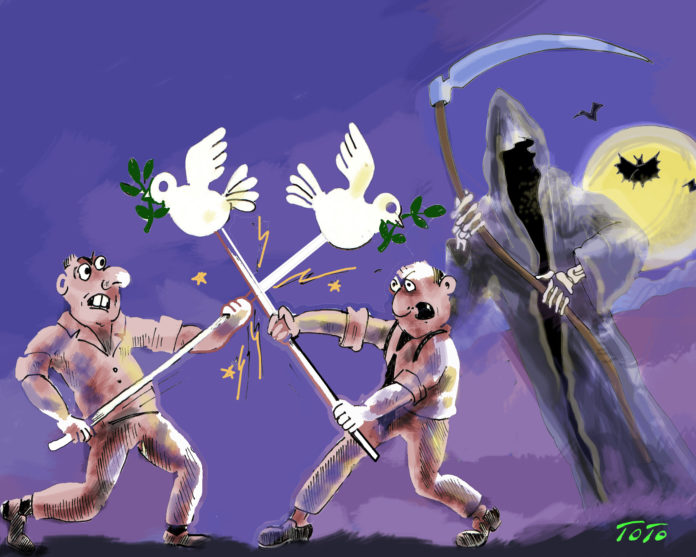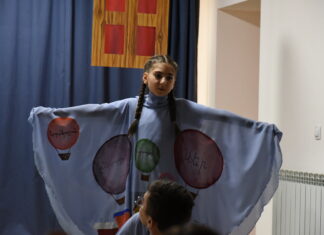Russia’s war rhetoric has been overtaken by the explosion of bombs as the country unleashes a full-scale war in Ukraine, although Moscow defines it as “special military operations.” The terminology makes little difference to the refugees flooding the countries neighboring Ukraine.
The only difference it makes is in abstract form, in legal terms, for Turkey to close the straits of Dardanelles, since by the Montreux Convention of 1936, Turkey is entitled to ban the military naval movements through the straits, if it can define it as war.
President Joe Biden, based on the intelligence gathered, had been warning that Russia was ready for a full-scale war, while pundits in the media believed the operation would be a limited one, based on the pattern previously established, particularly in Georgia where Abkhazia and South Ossetia were occupied and cleaved, or, from the Russian perspective, declared independent and recognized by Russia and some rogue states. It was believed that Russia, after recognizing their independence, would take over Luhansk and Donetsk, and trigger a perpetual war on Ukraine’s territory rather than this outright war.
But these predictions were proven wrong and what we have now is a full-scale war. At this point, anyone’s predictions may turn out to be empty conjecture as there are so many moving parts.
Along with the military operations, a parallel media war is being conducted and, for a change, the opinions on news channels are getting narrower with little distinguishing them apart. This time around, even the West is recognizing the power of the word and thus the European Union has banned the Russian Sputnik and Russia Today networks, which are often the mouthpieces of the Kremlin.
In a useful 2014 article published in the Washington Post, former US Secretary of State Henry Kissinger provided an overview of Ukraine and its historic relations with Russia. He concluded: “But if Ukraine is to survive and thrive, it must not be either side’s outpost against the other. It should function as a bridge between them.”








